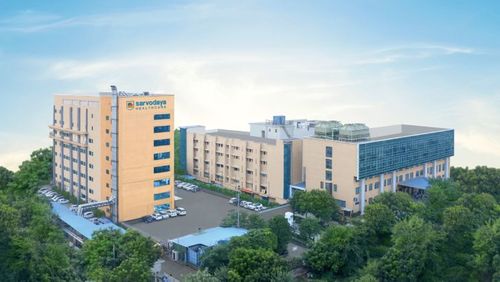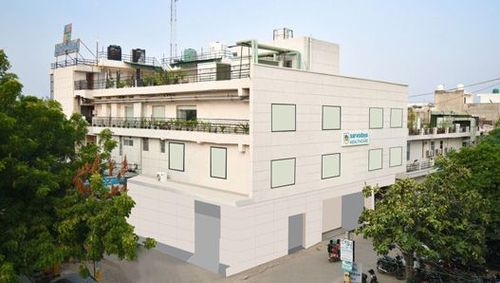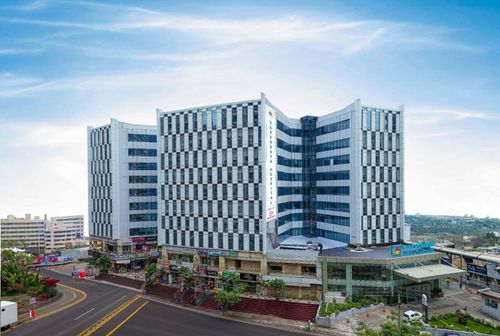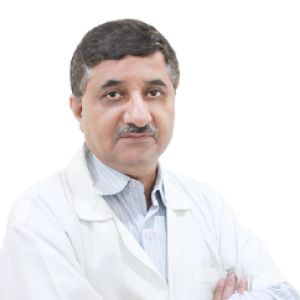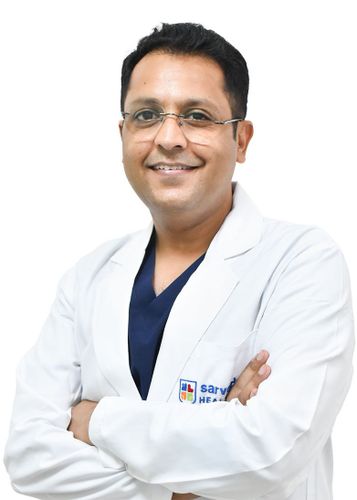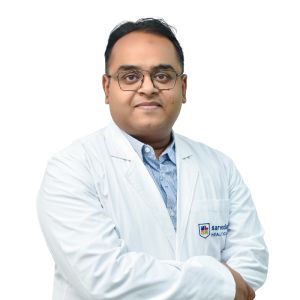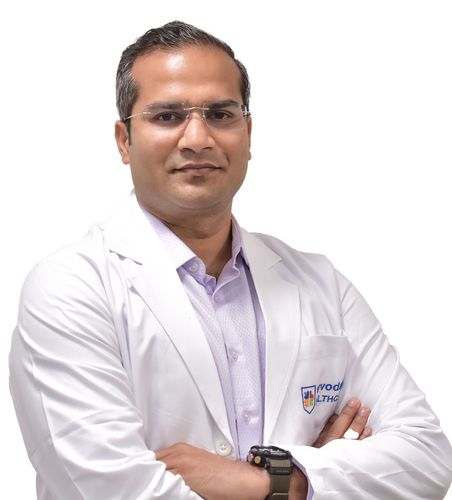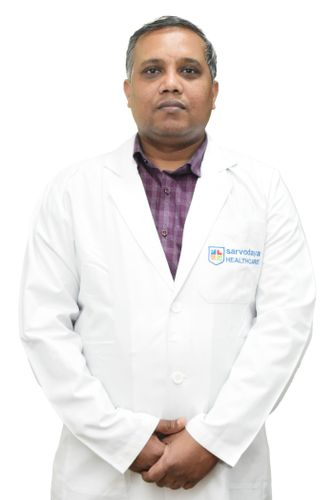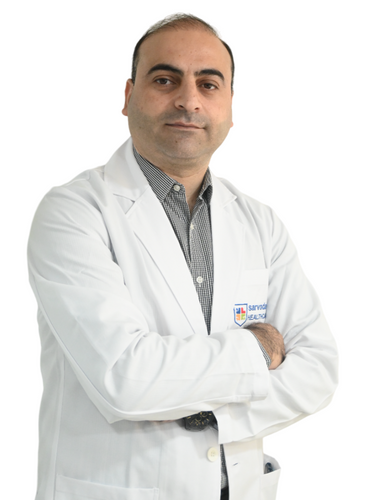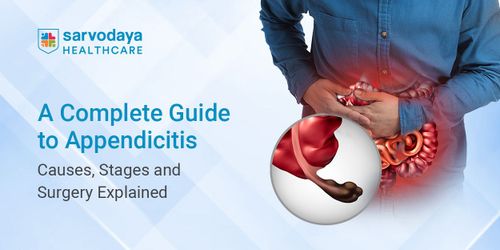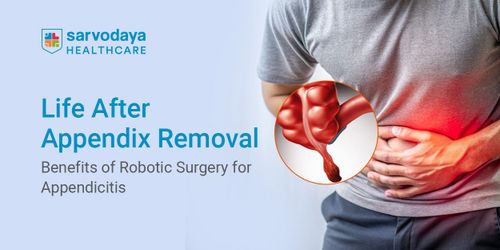Overview
Appendicitis is a painful inflammation of the appendix, often caused by a blockage due to infection or trapped stool. If not treated on time, it can lead to rupture and life-threatening complications like peritonitis. We offer prompt diagnosis and advanced robotic surgical intervention for safer, more precise outcomes.Our experienced surgical team ensures timely care with faster recovery, minimal scarring, and shorter hospital stays. Recognised as the Top Hospital in Delhi NCR, India, we are equipped to manage emergency and complex cases with expertise and compassion.
Appendicitis Symptoms
- Pain starting around the navel and shifting to the lower right abdomen
- Loss of appetite
- Nausea and vomiting
- Swelling or tenderness in the lower abdomen
- Low-grade fever that may worsen with time
- Difficulty passing gas or having bowel movements
- Diarrhoea or constipation
- Abdominal bloating
Appendicitis Causes
- Blockage of the appendix by stool or hardened waste
- Infection of the digestive tract (viral, bacterial, or parasitic)
- Inflammation of lymphatic tissue in the intestinal wall
- Trauma or injury to the abdomen
- Tumours (a rare but possible cause)
- Obstruction of the tube connecting the large intestine and appendix
Appendicitis Diagnosis
Timely diagnosis is vital to prevent complications like rupture or peritonitis. At Sarvodaya, our expert team, led by the Best General Surgeon in Delhi NCR, uses advanced imaging, lab tests, and clinical evaluation to confirm appendicitis quickly and plan prompt treatment.- Physical Examination: Doctors check for tenderness, especially in the lower right abdomen, and signs of rebound pain.
- Patient History Assessment: Details about symptoms, onset, and progression help guide further testing.
- Blood Tests: Elevated white blood cell count may indicate infection or inflammation.
- CT Scan: Offers clear imaging to detect an inflamed or swollen appendix.
- MRI Scan: Sometimes used as an alternative to CT, especially in pregnant women or children.
- Urine Tests: Helps rule out urinary tract infections or kidney stones that can mimic appendicitis.
Appendicitis Treatment
Appendicitis is a medical emergency that requires prompt surgical intervention to avoid rupture and life-threatening infection. At Sarvodaya Hospital, we offer a complete range of treatment options, including advanced robotic-assisted surgery for unmatched precision and faster recovery, led by the Top Appendicitis Surgeon in Delhi NCR.- Robotic Appendectomy: Our next-gen AI-powered surgical robots enable sub-millimetre precision through tiny incisions, reducing pain, tissue damage, and recovery time while enhancing surgical outcomes.
- Laparoscopic Appendectomy: A minimally invasive procedure using a camera and small tools to remove the appendix with faster healing and minimal scarring.
- Open Surgery: Recommended for complex cases where the appendix has ruptured or the infection has spread.
- Use of Advanced Surgical Equipment: Our operating theatres are equipped with robotic systems and high-definition imaging for enhanced safety and accuracy.
- Anaesthesia and Pain Management Protocols: Personalised approaches ensure optimal comfort before, during, and after surgery.
- Experienced Surgical Team: Our Best Robotic General Surgeon in Faridabad works in coordination with anaesthetists, nurses, and critical care experts for 360° patient care.
- Shorter Hospital Stays and Faster Return to Daily Life: Robotic and laparoscopic techniques allow most patients to resume normal routines within a few days.
Appendicitis Prevention & Lifestyle Modification
While there is no guaranteed way to prevent appendicitis, certain healthy habits can help reduce the risk of digestive blockages and gut-related infections. Here are some steps to follow:- Eat a high-fibre diet: It helps keep your digestive system smooth and prevents constipation.
- Stay well-hydrated: Drinking enough water supports regular bowel movements.
- Avoid straining during bowel movements: Reduces pressure in the intestines and lowers blockage risk.
- Seek timely treatment for stomach infections or digestive issues: Early care prevents complications that could lead to appendicitis.
- Avoid unnecessary use of laxatives or medications that affect gut function: Overuse may irritate or harm the digestive tract.
- Maintain a regular bowel routine Helps prevent buildup in the appendix and promotes gut health.
Pre- & Post-Surgery Lifestyle Modifications
Pre-Surgery Modifications- Follow fasting guidelines
- Stop smoking
- Inform the doctor about all medications
- Maintain good personal hygiene
Post-Surgery Modifications
- Avoid heavy lifting and strenuous activity
- Follow a soft, fibre-rich diet
- Take all prescribed medications
- Keep the incision area clean and dry
- Monitor for signs of infection
- Attend scheduled follow-up visits


